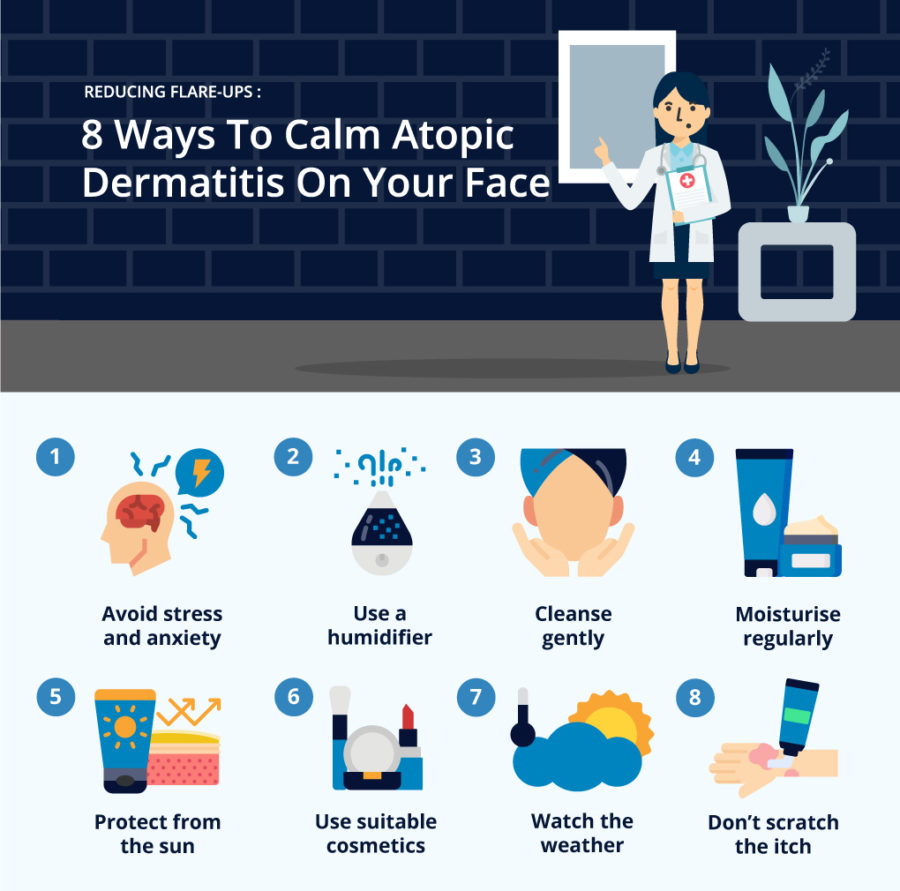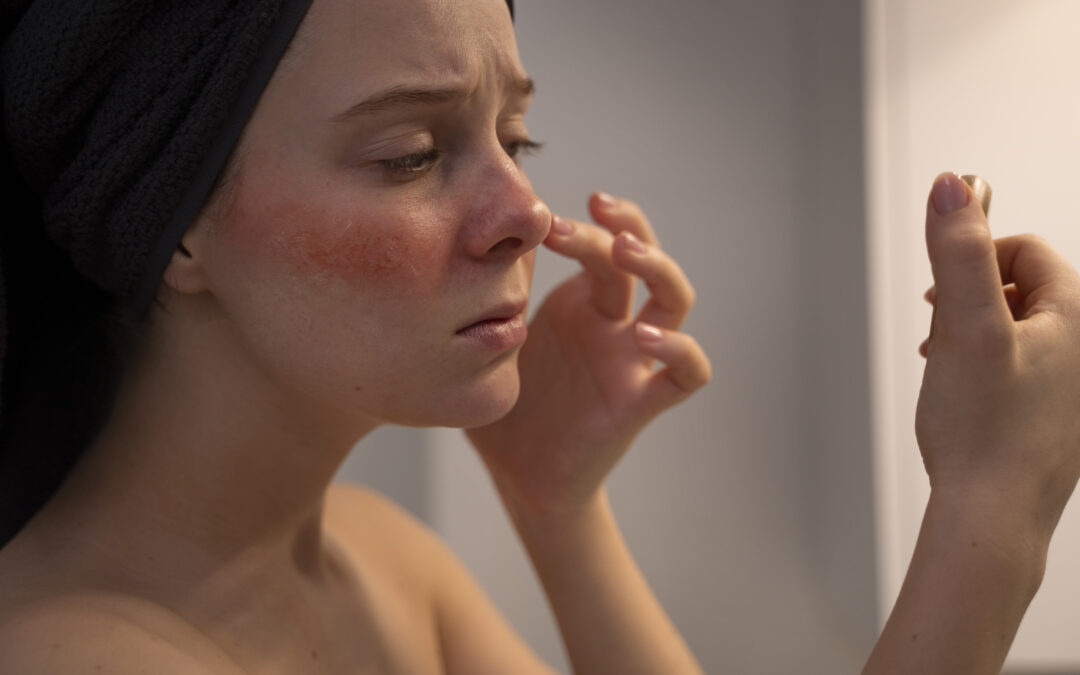
Eczema can appear anywhere on your body. Compared to areas that can be hidden underneath some clothes, your face is the most embarrassing part where it can be visible. It is the first thing that people see, and you can easily notice it in the mirror. Though eczema on the face is more common in babies and children where cheeks and foreheads are affected, anyone can get this at any age and anywhere on the face.
Since eczema on the face has no known cure, the question lies in how you can avoid triggers, calm and soothe your skin, and reduce flare-ups. Here are some easy tricks you can do at any time.
1. Avoid stress and anxiety
You might feel more emotionally stressed, anxious, and embarrassed because of your skin condition. This could worsen the eczema on your face. You can avoid these frustrations and improve your wellbeing by going through counseling. Talk to a therapist or counselor, or even anyone you can trust. By letting go of negative thoughts, you can quickly progress and follow the next steps.
2. Use a humidifier
If you spend more time indoors, the dry air circulating inside the house can cause the eczema on your face to become itchy and flaky. To ensure there is enough moisture in the air, you can purchase a portable humidifier. You can choose to put one in every room you spend more time in. This will do good for your skin.
3. Cleanse gently
Some facial cleansers have harsh ingredients that can further aggravate the eczema on your face. Choose the ones that are:
- gentle on the skin
- mild facial cleansers
- does not sting
- matched for your skin type
Here are the steps on how you can cleanse properly:
- Wet your face with warm water
- Apply a small amount of your cleanser
- Exfoliate your face with gentle movements
- Rinse with warm water
- Pat dry and do not scrub the towel
Choose a good cleanser and always remember not to use hot water to rinse because the heat will cause more dryness and irritation.
4. Moisturise regularly
Because having eczema on your face can cause visible dryness, it is important to keep your skin hydrated. There are moisturizers, emollients, and creams that can soothe and reduce dryness, maintain the skin’s hydration, and strengthen its protective barrier. Choose products that are mild and fragrance-free.
5. Protect from the sun
If you have eczema on the face, direct sunlight could trigger flare-ups. It is best if you use sunscreen protection that is suitable for your skin condition every time you go outdoors. Don’t forget to remove it after sun exposure, following tips 2 and 3. To know more about how your skin type reacts to the sun and get proper sun safety advice, take a skin scale test.
6. Use suitable cosmetics
Having eczema on the face doesn’t mean you cannot wear makeup. You can still have fun with cosmetics, but make sure to use products that are suitable for sensitive skin. Look at the ingredients and see if they don’t contain irritating chemicals. It’s good if you can use cosmetics with moisturizing or hydrating effects. Remember to fully remove your makeup before sleeping and follow tips 1 and 2.
7. Watch the weather
The environment is another factor that can cause flare-ups. If you have eczema on the face, avoid going to hot places and refrain from doing activities that can cause sweating. Hot weather and sweat can irritate your skin and make it itchy.
8. Don’t scratch the itch
Having eczema on the face or on any part of the body is always a struggle because of the intense itchiness of the skin. It is bothersome, especially at night when you are trying to get some sleep. You may tend to forget the number one rule: never scratch the itch, which would cause more problems and even bleeding. Instead of scratching, you can alleviate the itch by putting a cold, damp cloth or cold compress on the affected area. This can also reduce redness and soothe irritation. The easiest way is to look for suitable anti-itch products you can use to relieve the discomfort.
Final Thoughts
These are just some of the fastest ways to help reduce flare-ups and calm your skin. Always remember that the skin on the face is thinner and more sensitive compared to the rest of the body. Because of this, eczema on the face should be treated with the utmost care using milder products. Of course, it is best to have an accurate diagnosis of your symptoms. Consult your doctor for advice as to what the most appropriate recommendation is for your skin condition.
Ready to take control of your skin health? Download the NALA app today! With personalized tracking, detailed reports, and tailored therapy recommendations, NALA is your go-to companion for happier, healthier skin.


